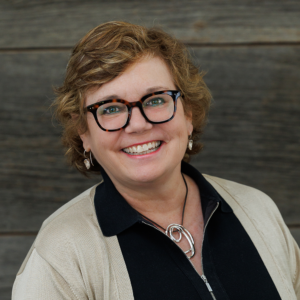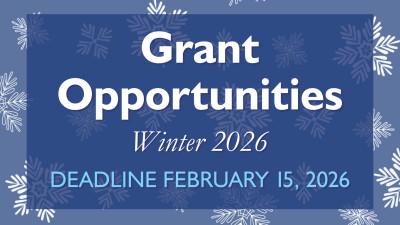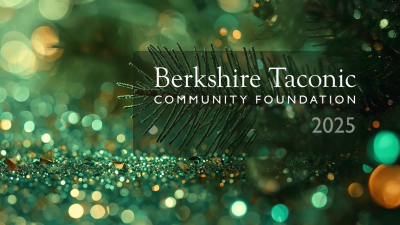
Interim president Kara Mikulich has a unique vantage point within Berkshire Taconic, having served at the organization for over six years, in two different roles. Kara joined the foundation in 2018 as Chief Philanthropy Officer following a 30-year career providing legal, development and grant writing expertise in the nonprofit and public service sectors. In September of 2024, she took the helm as Berkshire Taconic’s Interim President to guide the foundation during the search for our next president and to oversee future stages of growth. Five months into her term as president, we thought it would be a great time to have a conversation about the role our community foundation plays in the region and where we’re headed.
For Those Who Don’t Know...
What Exactly is a Community Foundation?
Kara shares that community foundations serve in a unique way within a geographic region, operating at a “nexus of need and generosity.” Berkshire Taconic is also unusual in the landscape of community foundations in that we serve four counties across three states. By partnering with a network of nonprofits and civic organizations, we get firsthand knowledge of what pressing needs arise in our towns and can swiftly allocate resources to them. This, she says, is both an incredible privilege and responsibility.
“We live in one of the most beautiful regions in the country, we have very engaged residents, a vibrant nonprofit community, and a creative economy,” and notes, “It’s also a place of great need, that is becoming increasingly unaffordable for so many of our neighbors.”
“People here really love and care about their hometowns,” Kara says. Berkshire Taconic works with volunteers and donors deeply connected to the region who want to see it thrive. Hundreds of residents serve on our scholarship and grant committees each year. Kara also cites the strong support, insights and engagement from the board and staff as a fundamental strength of the foundation. Listening is key. Equipped with local knowledge, we are able to respond with flexibility via our Community Fund and direct resources to local need. In addition, our geographically-specific Area Funds fortify long-term resiliency in our four-county region with grants supporting nonprofits, community programs, housing, early education, the arts and much more. Another winning advantage, in Kara’s view, is that Berkshire Taconic is “designed to last forever;” to be a permanent funding resource via endowments, investments, and fiduciary expertise in the stewardship of funds.
What Programs Best Describe BTCF’s Vision?
Kara is inspired by the new partnerships and wider reach generated through our Equity Fund, launched in 2024. She says, “it is our call to center the work of BIPOC-led and BIPOC-serving organizations in our region who, too often, have been outside the sphere of our giving,” and haven't had enough access to resources. She’s excited about the new leadership and community voices we’ve been able to engage with through this initiative.
The Equity Fund uses a community-based model, sometimes referred to as participatory grantmaking; the expertise and input of the communities served guide all grantmaking decisions. Equity Fund grants are made by members of the BIPOC community to serve the BIPOC community. This model is a key shift in the traditional power dynamic of grantmaking and is part of a growing movement in philanthropy in the way dollars are granted. After years of development and preparation guided by Gwendolyn VanSant of BRIDGE and stewarded by our Equity & Inclusion Officer Alÿcia Bacon, the fund launched in the fall with a celebration at St. James Place and its first round of grantees.
BTCF’s focus over the years to deepen and expand our work farther into our communities informs where we are now. Kara cites the ongoing important work of NEDCorps, an initiative of the Northeast Dutchess Area Fund, which provides mobile case management and immigrant services throughout northeast Dutchess County. This network of services for families, with a focus on immigrant families, connects people to resources and helps sustain the overall health of the community.
Our Arts Build Community Initiative (ABC) brings arts experiences to people in Berkshire County who have historically been excluded. ABC is an opportunity, Kara shares, for the foundation to “support the arts sector and grow in our commitment to equity,” and she’s encouraged by the way organizations are viewing programming through a new lens, asking, “who are we reaching, who are we listening to, and who are we serving?” Significantly bolstering our ability to engage with more community members is the support of the Barr Foundation, the largest private philanthropic foundation in Massachusetts. They chose BTCF as one of the “on the ground” grantmaking partners for the Creative Commonwealth Initiative.
ABC has engaged over 18,000 residents and 67 arts organizations to date in Berkshire County and has been a catalyst for additional donations from generous local supporters. ABC underwrites a breadth of programming including arts integration in classrooms, Barrington Stage’s Celebration of Black Voices, storytelling performances for immigrants, and plays co-created with and based on the experiences of formerly incarcerated people.
What is BTCF Working on for 2025?
When asked what future BTCF projects she’s excited about, Kara points to our 2025 pilot launch of a guaranteed income program in Columbia County that will provide $500 per month to a subset of residents in need throughout the county. Programs of this type have been piloted across the country and are a proven anti-poverty tool. In the context of low wages, inflation, and rising housing costs, this no-strings-attached financial support has a tangible, stabilizing and positive impact on people’s lives. It expands possibilities in employment, educational attainment and housing and provides many more long-term benefits. Kara says, “In some ways, it has this incredible simplicity. It works.”
As a foundation, we look forward to building upon what we’ve learned and celebrating the achievements of our community partners. At the same time, Kara recognizes that, “we have entered a precarious time for nonprofits, as they face unprecedented threats to their funding and an escalation in need for their services. In the next four years, the generosity of our fundholders, donors and grant committees will be more important than ever.”




